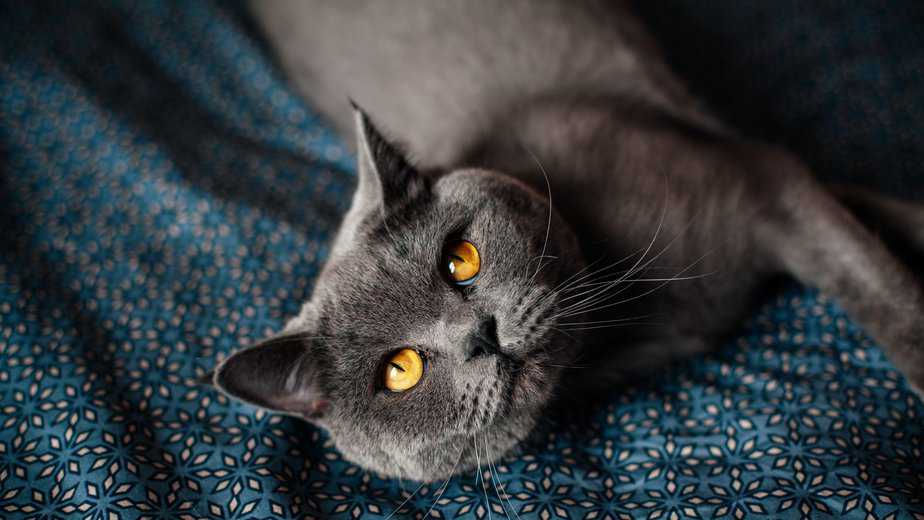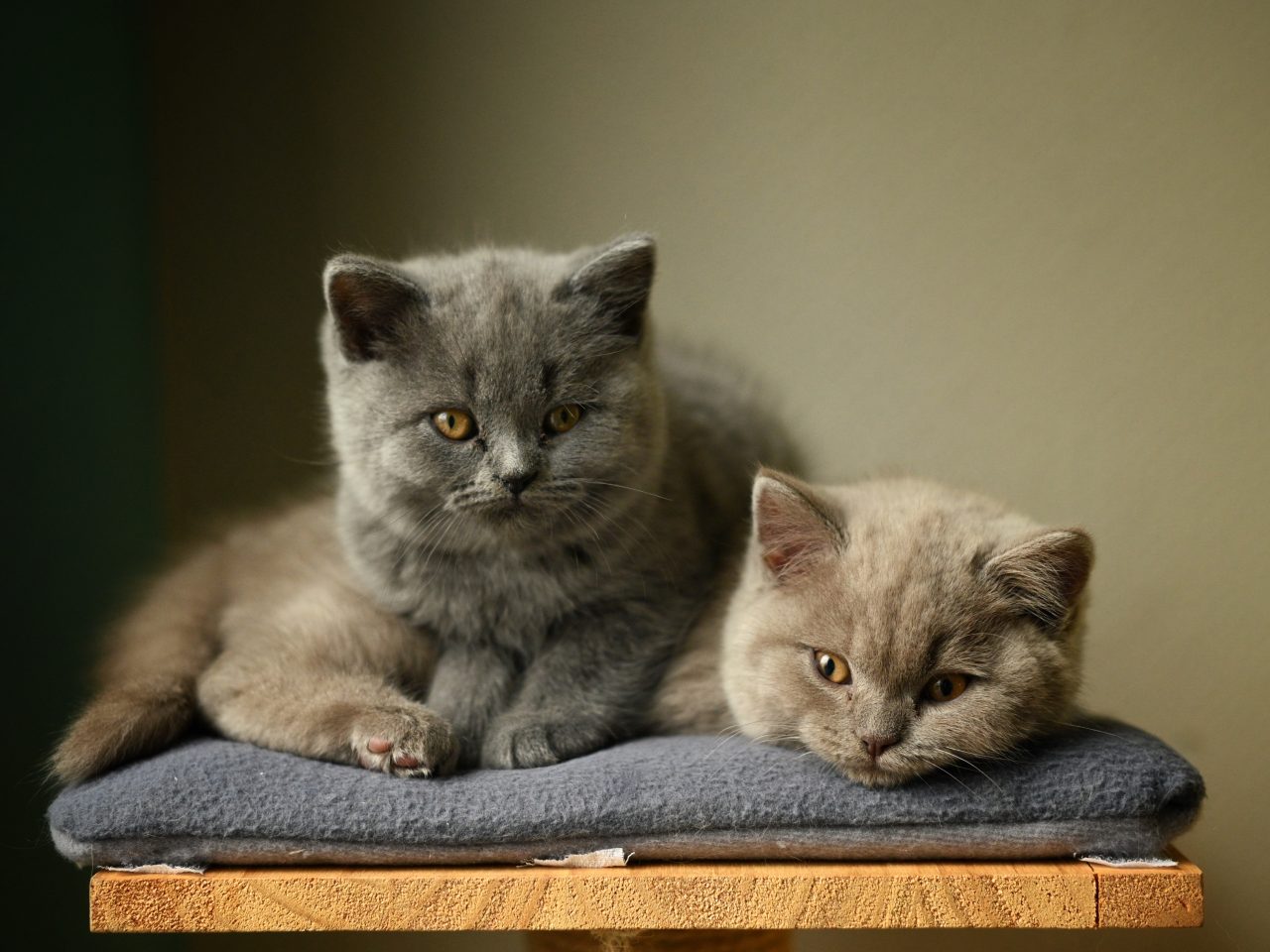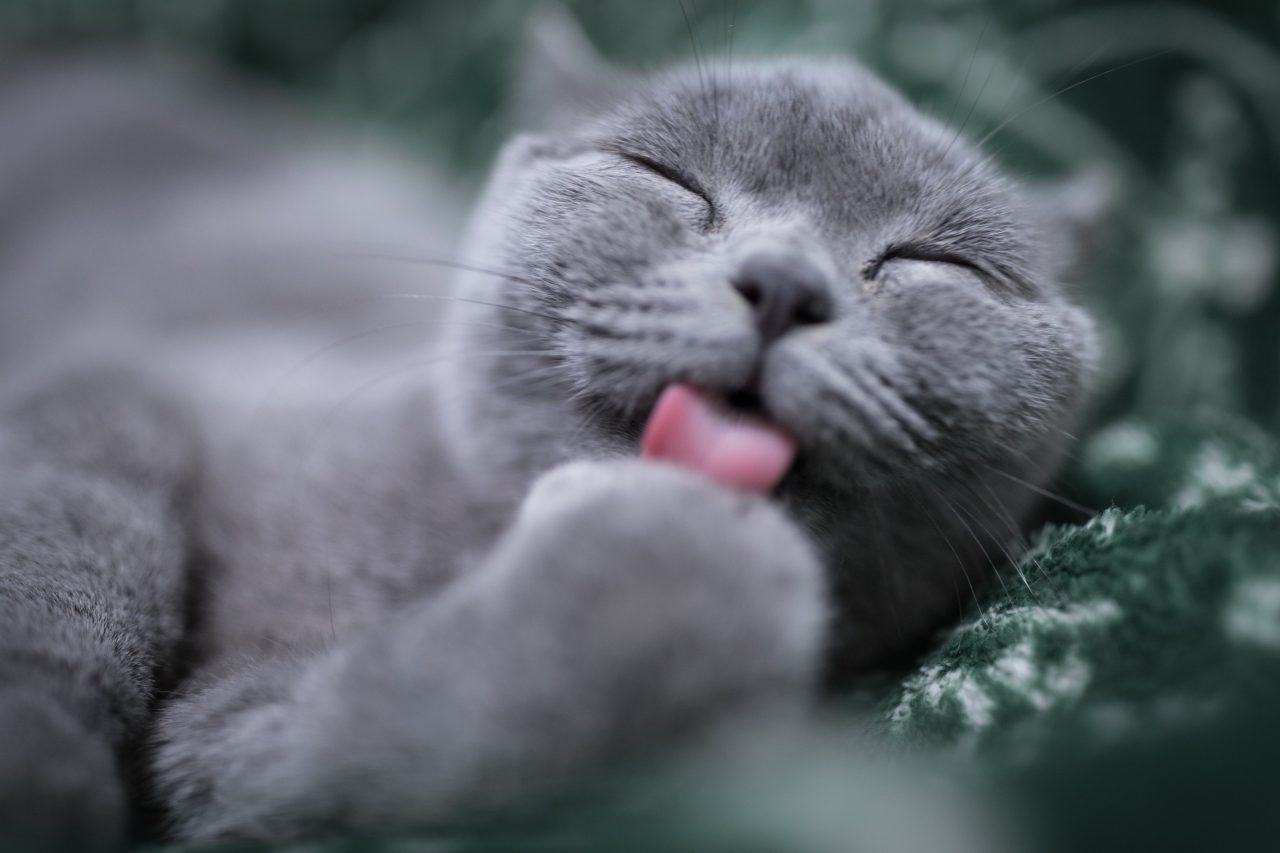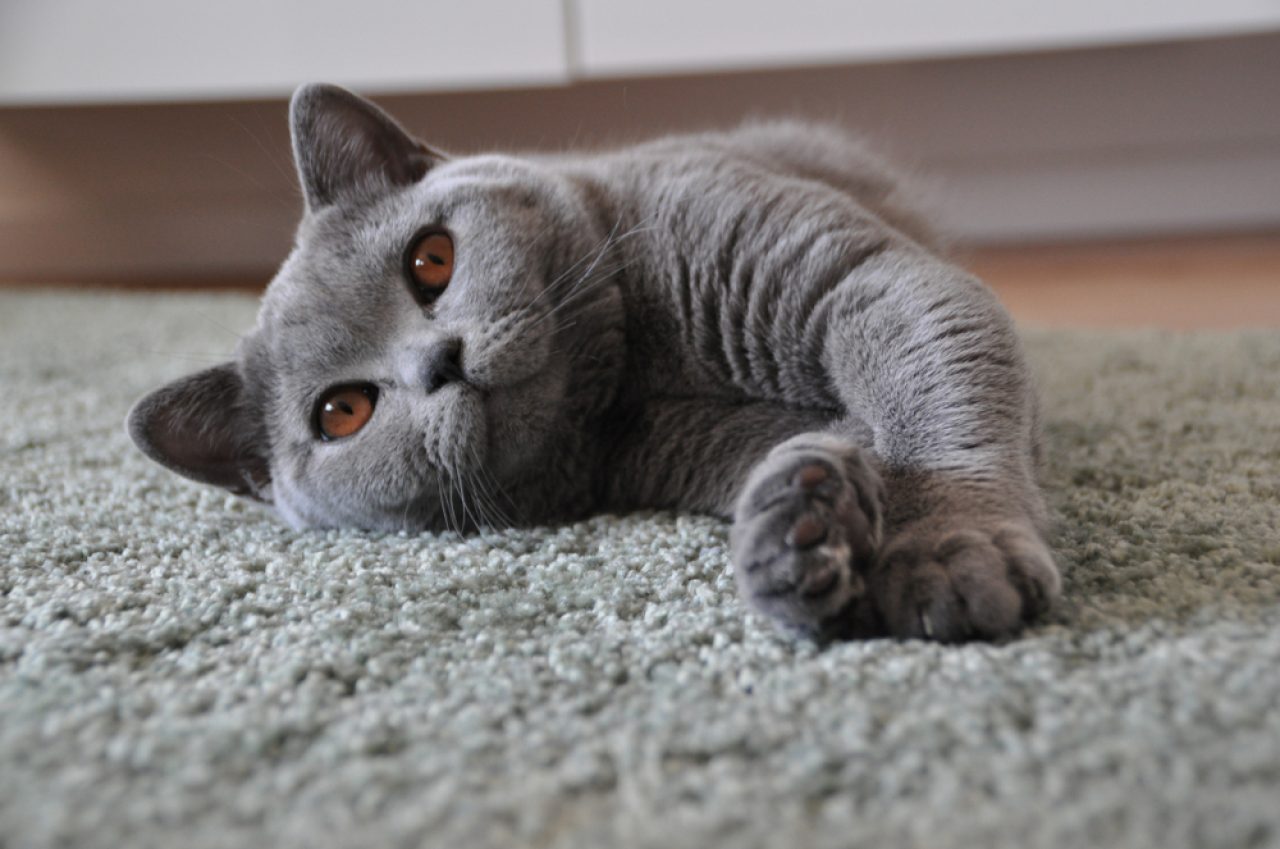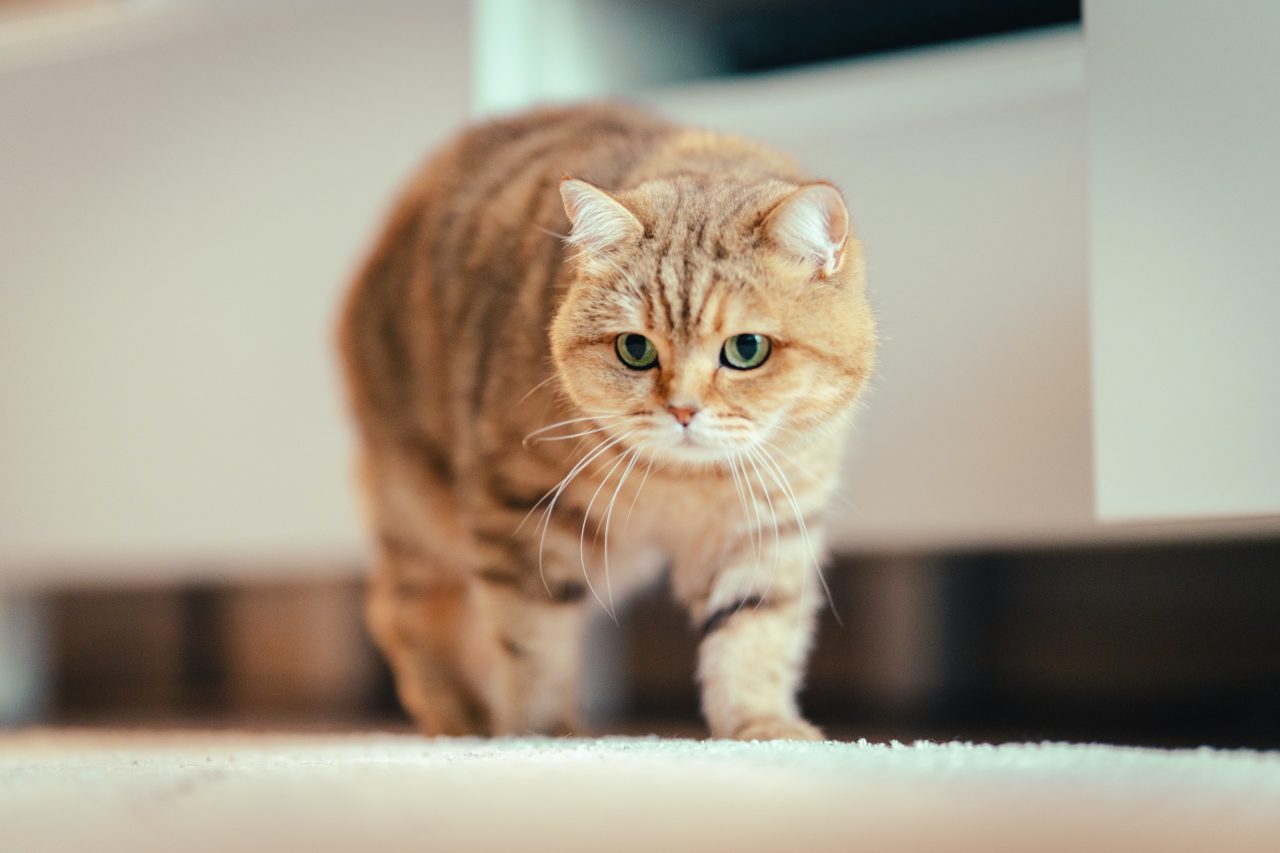📖 Table of Content:
Today we got a new buddy in our pet shop, and it’s a pretty incredible cat breed. Since these felines are quite popular, I decided to answer some questions that I know you may ask. Let’s start with this one: “Are British shorthair cats hypoallergenic?”
I know that this will be one of the first questions you’ll ask as soon as you see this fluffy angel. This is a traditional domestic cat in Britain and one of the most ancient breeds that we know about.
When it comes to their fur color, the most popular is British blue. They have solid grayish fur and orange eyes. Of course, there are a lot of others that have tabby patterns, for example, or bicolor and colorpoint patterns as well.
They have large and rounded heads and big pointy ears that have a triangular shape. Reaching full physical development is a bit slower for this breed, so they’ll be mature only when they are around three years old.
Their fur makes them stand out from the rest and it’s actually their most beautiful asset. It makes them extremely fluffy and a perfect cuddle buddy for those days when you’re in need of one. They only have one plushy layer of fur and as they move, their coat separates noticeably.
As soon as you see them, you’ll understand why I think they’re absolutely adorable. So, without further ado, let me answer the question of whether British shorthair cats are hypoallergenic or not. Buckle up because the truth may surprise you.
Are British shorthair cats hypoallergenic?
Unfortunately, the answer is no. I know that “shorthair” gave you some hope, but these beautiful creatures are not completely safe for allergic pet owners. It’s true that this breed produces less Fel d 1 protein, and that confuses people a lot.
However, British shorthair cats aren’t hypoallergenic and they have moderate to high chances of triggering allergies. Even though they are not shedding too much like long-haired cats, they still produce a decent amount of dander.
As you probably know by now, besides a cat’s hair, dead skin cells (also known as dander), saliva, and feces are the main cause of allergic reactions. Therefore, not a single cat breed is completely hypoallergenic, even though some of them are less likely to trigger allergic reactions.
The response we have for certain breeds are not the same, so you can never be sure without little experimenting. All of us are individuals with different immune systems, so if I’m allergic to British shorthair cats, that doesn’t necessarily mean that you are too.
Therefore, if you badly want this fluff, spend some time with her in a pet shop, or at your friend’s house and discover if she’s hypoallergenic for you. Consult your doctor if you should do this, in case you already have a serious reaction to cats.
If it turns out that you are, opt for a safer choice. There are some cats that are a cross between this breed and another that doesn’t cause as many allergies. That mix will probably produce less dander and won’t shed a lot.
Am I’m strong enough to own a purebred British shorthair?
It’s good that you asked this question. As I’ve mentioned earlier it completely depends on your immune system. You have to pay attention to how your body behaves when you’re close to these felines. British shorthair cats may be a hypoallergenic breed for some of us.
Even though your feline’s hair will be everywhere without a doubt, the main culprits for your coughing and sneezing will be her dander and saliva. Therefore, if you’re not sure about possible allergies, the best is to spend some time with them, as previously stated.
Since their hair is short, as their name suggests, dander moves faster to its ends. That way, these beauties release more allergens in the air than hypoallergenic breeds. As they really like to get themselves clean, saliva often ends up on their fur as well.
So, you can come in contact with these two highly-triggering allergens in no time. It’s enough to pet your cat – and boom, an allergic reaction shows up.
We all react in different ways, but your British shorthair may cause you breathing problems and skin irritation. You can also expect to have swollen eyes and skin rashes. In case you already have asthma, I’d advise you to stay away from these beauties. Spending time with cats will only make it worse.
It’s good to know that Fel d 1 and other proteins that cause allergies are pretty stable, so they won’t break down easily. That’s the reason why some people can sense if the cat was in the house, even though it’s not there anymore.
If you ever thought that your best friend was fake-sneezing even though you cleaned your room and took the kitty outside, now you know that’s not true. Allergens can stay in the air for a pretty long time and trigger some of those people who have severe reactions when they’re in direct contact with cats.
How can I minimize cat allergies?
Since the completely hypoallergenic breed doesn’t exist, people came up with different ways to minimize their allergies. Of course, you’ll never be able to remove the allergens from the environment completely, but there are some tricks.
Some people swear that spending time with cats and forcing your body to get used to the Fel d 1 protein will actually strengthen your immune system. Others wouldn’t agree since their symptoms got worse.
You have to keep in mind that what worked for others may not necessarily help you too. But these furballs are worth trying, right? So, how can you minimize the number of allergens in your living space?
1. Brushing
Regular brushing of your British shorthair will not make her hypoallergenic, but it will definitely reduce the number of allergens. Try to incorporate this as your bonding habit and do it at least once a week.
Their dense fur and your body will be grateful. Wear a mask or some kind of protection over your mouth and nose in case your allergy is really strong. Also, it would be best if you use a rubber brush like this one by Furbliss since it will help you remove dander and other possible allergens from her fur.
2. Air purifiers
One of the best things you can invest in is an air purifier. You can keep one in your bedroom to make your sleep time better. It’s also a good idea to have one in the part of the house where your feline spends most of her day.
These magical devices will reduce the number of allergens floating freely around your living space. Check out the prices and quality before you make a purchase. Also, buy those that are pet-friendly, since some of them may contain toxic chemicals.
This one by Germ Guardian is a great option if you want to invest in something that’s going to last you a long time.
3. Training
British shorthairs are incredibly smart and independent cats. It’s possible to train them, so you should use that to your advantage. If you’re allergic to a cat’s saliva, you can teach your feline not to lick you or anything that you’re using often.
It’s not impossible to make her stay out of your bedroom or off of your sofa in the living room. You’ll be able to easily teach her to use her litter box when needed, as well. Give them a lot of toys and puzzles that they can have fun with.
4. Bath
This may be a bit tricky since not all cats actually love spending time in the water. British shorthair is one extremely curious breed, so as soon as she sees the running water or shower, she may jump in.
However, this is not true for all of them, so you need to take it easy with your feline. The best solution is if you start bathing her when she’s still a little kitty, so this will become a habit she enjoys. You can do this once a week or less, since it may be a bit difficult to do it on your own.
5. Wet wipes or cloth
There’s something a bit easier than giving your cat a bath – use wet wipes. If you let your Bengal cat outside, she’s definitely not returning inside hypoallergenic at all! Besides being the carrier of allergens herself, chances are high that your feline may collect something else from the environment.
We’re talking about pollen here, dust, or anything else that causes difficulties with your breathing. As soon as she decides to get back in the house, put some gloves on, and clean her fur. You can also use a wet cloth that you’ll wash afterward.
6. Clean your living space
Another thing that you should do more often if you want to reduce the number of allergens in your living space is to keep it clean. Make sure that you’re using detergents that are not toxic for your pets and do your chores.
You can also use some with a stronger scent that will deter cats from certain places. This will help you in training her to use her litter box or to stay away from your bedroom. Investing in a good vacuum cleaner may be one of the best decisions you can make as well. After adopting the cat, of course.
7. Wash your hands or use gloves
One more thing that can help you minimize allergy reactions is this one. Use gloves when you’re petting your furbaby, or when you want to play with her. If that’s not something you’ll gladly accept, then make sure that you wash your hands thoroughly and more often.
8. Medicine
If none of the things previously mentioned doesn’t work out, there’s still a chance. You can ask your doctor to prescribe you some medicine that will soothe your allergies. Follow the instructions that he or she gives you, but in case things get serious, don’t go near cats.
I know that having a feline would make you feel better on most occasions since they can reduce stress and anxiety in their owners. But if you can’t handle it, rather avoid them and choose to take care of your health.
Final words
I know that my negative answer to the question “Are British shorthair cats hypoallergenic” is not something that you wanted to hear. These beautiful, friendly, and active creatures are irresistible, but if you have issues, you should pay attention to them.
They may be shedding less than other breeds, but that’s not the main reason some people are allergic to them. As you know, Fel d 1 protein is to blame, and it’s present in their saliva, dander, and feces as well.
Therefore, these fluffballs can carry a lot of other allergens on their short hair as well, so you should help them with grooming if you want a healthier space.
Not being able to adopt a British shorthair cat doesn’t mean that you can’t find your hypoallergenic breed. Maybe a Bengal cat will be a perfect choice for you. Don’t let a little sneezing and coughing prevent you from having a furry friend by your side.
